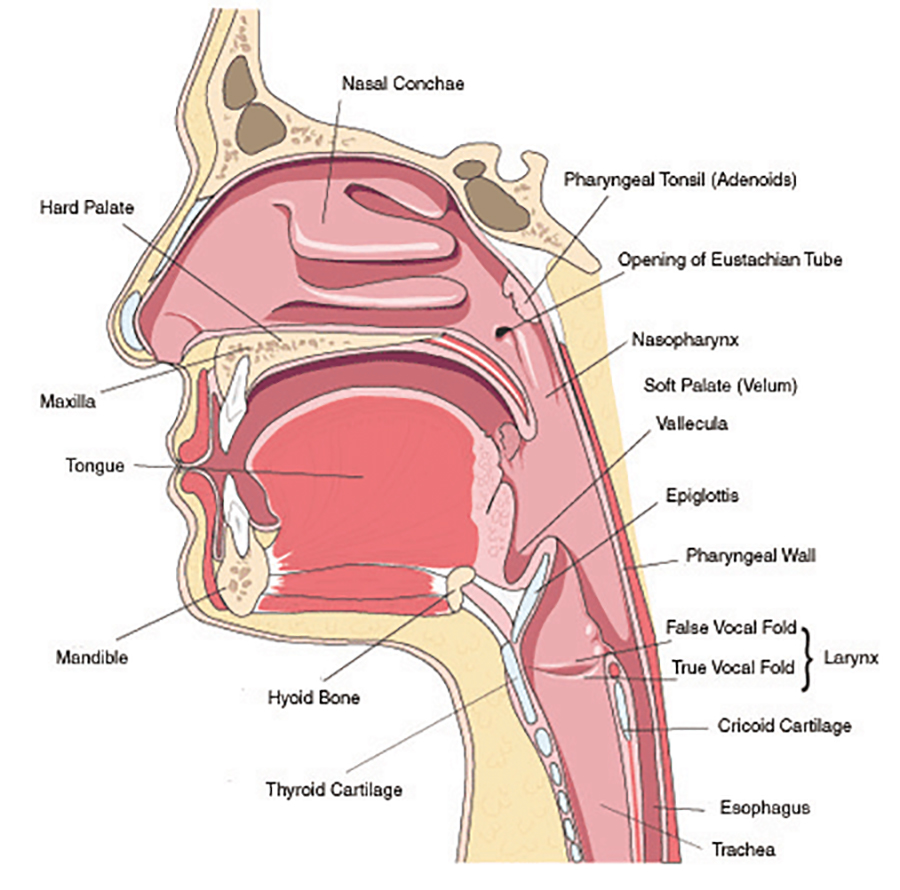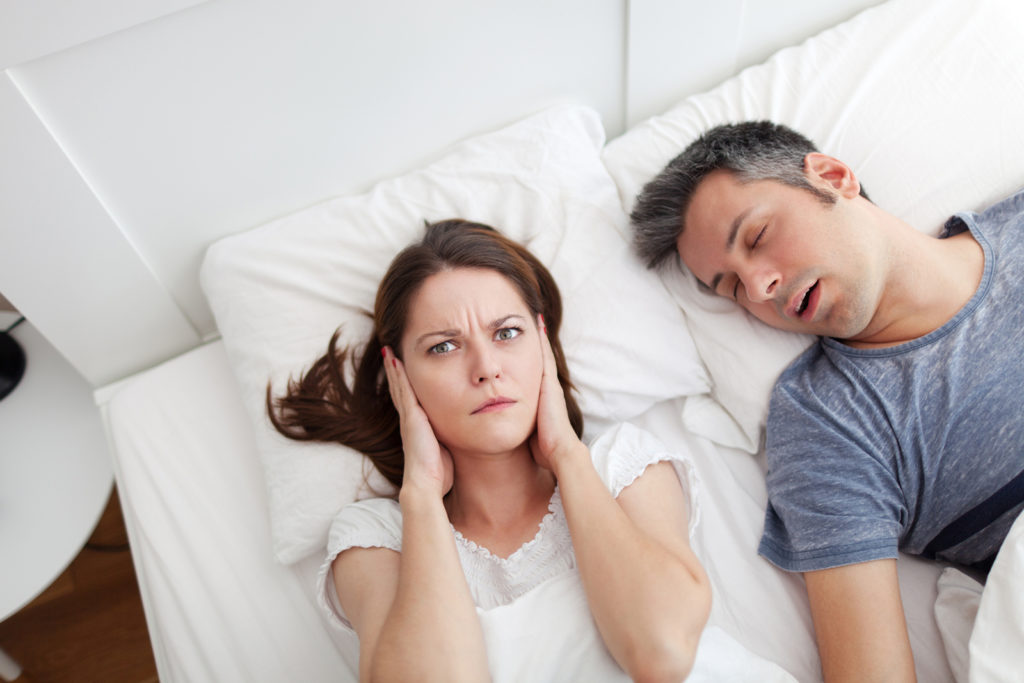Over 40% of adults over the age of 40 snore!
Due to its prevalence, many people do not consider snoring to be a sign of a serious problem.
In some cases however, it can be associated with sleep apnea, but not everyone who has sleep apnea snores, and not everyone who snores has sleep apnea. The only way to truly know whether or not your snoring is apnea-related is to have a doctor-prescribed sleep study (PSG) completed. Any sleep problem which leaves you chronically fatigued, sleepy, and irritable is a significant medical problem with the potential for broader systemic implications. Excessive daytime drowsiness may also be due to other disorders, such as life-threatening narcolepsy.
Why does snoring happen?

Our airway, or our pharynx is normally kept open by a band of muscles which are normally in slight contraction. Obstructive sleep apnea occurs when these muscles relax too much. These muscles are responsible for supporting the soft palate, the tonsils, the side walls of the throat, and the tongue.
When the muscles of the pharynx relax too much, the airway closes partially or completely. As a result, when we try to breathe in, we struggle for air. This in turn may lower the level of oxygen our bloodstream.
The brain is exquisitely sensitive to the oxygen levels of our blood and can sense when it drops too low. In response to low oxygen levels, the brain will arouse us from deep sleep, and this will concurrently cause the airway to reopen. These awakenings can happen repeatedly, but also be brief enough that we cannot remember them.
A snorting, choking or gasping sound may occur at the time the airway reopens, amd this pattern can repeat itself five to 30 times or more for each hour of sleep. Because this dysfunctional process impairs our ability to reach our needed amount and quality of sleep, we can feel sleepy during your waking hours as a result.
